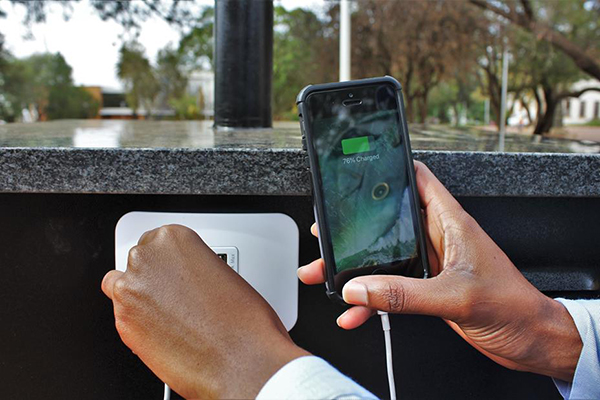Latest News Archive
Please select Category, Year, and then Month to display items
02 January 2025
|
Story Gerda-Marie van Rooyen
|
Photo Supplied
 Leading the research in South Africa is Prof Linus Franke from the Department of Soil, Crop and Climate Sciences.
Leading the research in South Africa is Prof Linus Franke from the Department of Soil, Crop and Climate Sciences.
Scientists are actively pursuing the successful breeding of diploid hybrid potatoes from inbred lines. This is expected to revolutionise potato breeding as it holds the key to rapid genetic progress. It will introduce new varieties for commercialisation through seed. Currently, existing potato variants have a gene that renders self-pollinated seeds infertile.
Prof Linus Franke, an academic in the Department of Soil, Crop and Climate Sciences at the UFS, is leading the research in South Africa. “This technology allows the production of genetically uniform potato seed that is easy to transport and largely disease-free.” He says this differs from conventional breeding whereby only vegetative propagation is possible due to tetraploid varieties in potatoes. It also risks carrying pests and diseases from one generation to the next – leading to the accumulation of pests and diseases with each round of multiplication.
Seed innovation
Prof Franke explains that Solynta BV, a seed company based in the Netherlands that produces potato varieties that can be grown from seed, has included South Africa in their research efforts because it is one of Africa’s largest producers and exporters. Through his academic relationship with Wageningen University and Research, a Dutch institution renowned for its agricultural endeavours and food production, the UFS became involved in researching hybrid potatoes grown from seed.
Diploid seeds containing two sets of chromosomes allow easier gene manipulation to increase predictability and speedier genetic progress. The breeding approach enables the incorporation of tolerance to pests, diseases, abiotic stresses (cold, heat, drought) and other desired genetic traits.
Although Prof Franke is optimistic about this research, he is not blind to disadvantages. “Potato seeds are tiny and have little energy reserves, making it harder to grow potatoes from seed than from tubers.” He says potatoes from seed will take longer to cultivate than tubers, as farmers need to grow plantlets from seeds first, adding six weeks to the growing period. “It is possible that commercial farmers can grow potatoes directly from seed. Alternatively, perhaps more likely, specialised growers will produce tubers of potatoes from seed; these tubers are then sold as seed tubers to other potato farmers, who then continue their normal practices of producing potatoes for the market from tubers.”
Financial benefits
Prof Franke says farmers have reason to get excited. “Seed potatoes will reduce input costs, as varieties with enhanced tolerance to pests and diseases require less pesticides. Planting one hectare of potatoes requires three to four tonnes of potato tubers, but only one 25 g packet of potato seeds.” Since potatoes are a more valuable commodity than maize, this technology might also increase farmers’ income potential.
First solar charging station launched at UFS
2017-11-13

Students can now charge their phones at the first solar charging station
on the Bloemfontein Campus.
Photo: Moeketsi Mogotsi
On Friday 10 November 2017, the first solar charging station (600watts) was launched on the Bloemfontein Campus. This unit will be used by students to charge their phones and Ipads. It is the first of nine units to be installed on all three campuses; five on the Bloemfontein Campus and two each on the South and Qwaqwa Campuses.
Team effort results in great outcome
The project was a collaborative effort between the UFS and FCE Consulting Engineers. Coenie van der Merwe, Prototype Design Engineer, played a vital role in designing the charging unit. Anton Calitz, Electrical Engineer in University Estates’ Department of Facilities Management, says, “We are hoping that by the first quarter of 2018, we would have rolled out the remaining eight charging units.”
Project to enhance sustainability and address student needs
Prof Nicky Morgan, former Vice-Rector: Operations, says, “This should be a symbol of affordable opportunities that will both save the planet and enhance financial sustainability.” Nico van Rensburg, Senior Director of University Estates, says, “This renewable energy project is an innovative way of addressing student needs.”
However, students are advised not to charge other electrical appliances at the charging stations besides their phones and Ipads, as this may cause the charging unit to trip.
The UFS was recently awarded for its contribution towards sustainability. This was in recognition of its amazing initiative to install and operate photovoltaic (PV) and greywater systems on all three of its campuses.